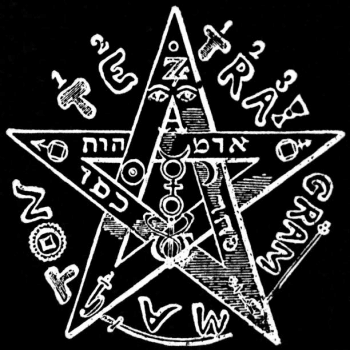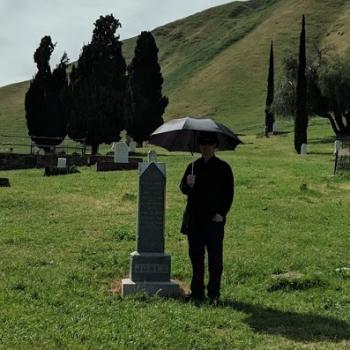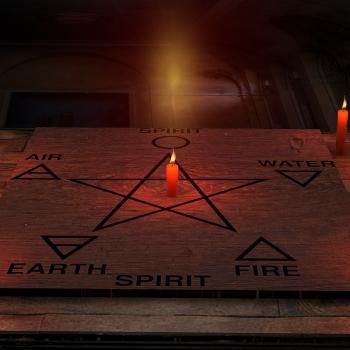When it comes to learning magic, divination is both one of the most accessible and powerful of the basic techniques. It not only has direct utility, but also develops the skills and awareness needed for growth and progress. But divination relies on a world beyond everyday understanding, so people often wildly misunderstand it.
For many of us in the magical and Pagan community, our first foray down the path came when we bought, or were given, our first tarot deck. Back when I bought my first one, in the early 90s, there was something maybe a bit dangerous, scandalous, and breathy about it. Holding a shiny new copy of Donald Michael Kraig’s Modern Magick, I bought myself the basic deck at the time, the Rider-Waite.
When it comes to divination, the most common Western techniques are tarot cards, rune stones, and pendulums. More broadly, we might seek omens in nature (the appearance of birds and the shapes of clouds are popular), or the casting of sticks, shells, or bones. The tool itself matters less than the skill and technique.

While divination techniques are ubiquitous across cultures, they take on myriad forms. While we might all recognize the common tools like tarot cards, the runes stones, or the Book of Changes, it is just as possible to have techniques that are known by just one or a few people.
So, What Is Divination?
Divination is not for seeing the future. It is, rather, for seeing the present so deeply that both past and future may be revealed. As such, the magic that brings about divination is (mostly) not in the tools, but in the practitioner.
Divination is not about the tools. It is a ritual, a skill, and a state of mind. With training, that which is hidden can be revealed, and meanings can be discerned.
The root of the word divination is the same as the root of divine, tracing back to the Proto-Indo-European *deiwos meaning “a god.” Perhaps people once thought that all divination came from communion with the gods.
Why Practice Divination?
While divination has come to mean the ability to see the future, this focus on the future is not the whole of divination. Yes, the future is always of concern to humans, but there are other concerns as well.
We can use divination to see things otherwise hidden. The future is not set in stone, and free will can change many things.
Divination is not just an end in and of itself. Divinatory training opens the barriers between the divided aspects of the self. Even the most basic divination can begin to allow communication between the everyday mind and deeper aspects of the self.
From there, divination can open awareness of a larger spiritual world. After all, our perceptions of any spiritual aspects of reality are only as clear as our communication with spiritual aspects of ourselves.
How Does Divination Work?
As we pass through the everyday world, our human spirits interact with and help shape everything around us. At the same time, the world around us shapes who and what we are at each moment.
You have almost certainly heard the old saw that we are all connected. It is true, though not in the dramatic way we sometimes imagine. Still, on a spiritual level, those influences can be appraised and interpreted.
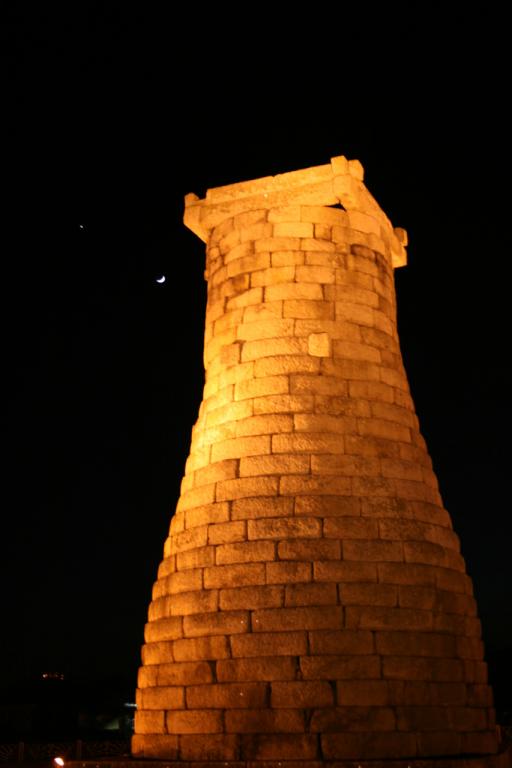
Animistically, every divination tool has a spiritual identity as well as a physical form. But the spiritual presence is not particularly powerful. This is actually a good thing; we do not want our tools to shape reality, so much as act like falling leaves that show us the direction of the wind.
Divination systems create a context for arbitrariness. They provide a new way of sensing the world, allowing us to see what are otherwise subtle variations.
The power is not in the tools. The real magic is inside of us, providing a way for us to access our intuition and instincts.
Practice is key. Consistent use of tarot cards, or runes, or even a set of songs played “on random,” can create a habit that allows us to see these variations with a more discerning eye.
What Tools Do I Need?
As humans we do not need any special tools for divination. An experienced practitioner can know simply by seeing. That said, skill comes with hard work. We do need tools for both training and practice.
It does not matter too much what method of divination you choose at the beginning of training. Many people begin their interest in occult topics by buying a tarot deck or a set of runes. Whatever you choose, I recommend that you find a system that resonates deeply with you.
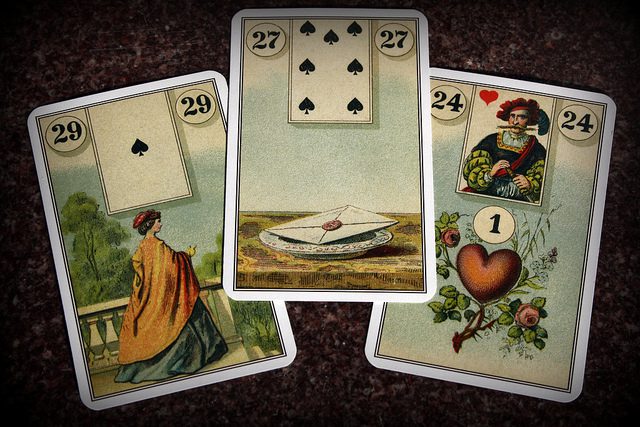
With practice, any method becomes viable, and often only watching the world around us will be necessary. With consistent meditation and a spiritual outlook, omens and patterns in the world can be discerned. The results may be surprising!
Is Divination Magic?
The magic of divination is about harnessing what we usually think of as “random chance.” If you think about it, things are never truly random. They are simply influenced by factors beyond our knowledge.
The cards we choose in a tarot reading are influenced by the world of the spirit. The shuffling itself is not “magical” in some Harry Potter-esque way; cards do not leap about the deck. But neither is it “random.” Our spirits guide us in what to do, what moves to make.
The rituals of divination are about harnessing our own spirit’s normally inaccessible knowledge. We do this by trusting our intuition in a context where our spirits can take some of the “randomness” out of the choosing of the signs.
Divination is predicated on the idea that our spirits can know things about the world around us that our everyday minds cannot. It takes practice.
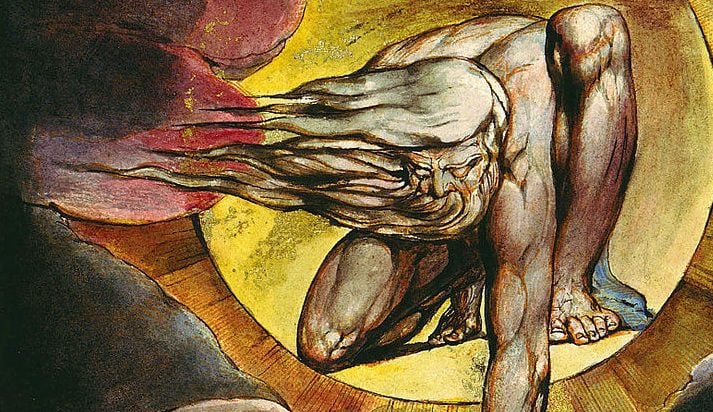
And so divination is about developing a language that allows our spirits to communicate with our everyday minds. Living in a culture where such access is mocked and disregarded, it becomes a powerful technique.
The connection of the signs into something meaningful is an act of intuition. Both the arranging of the cards and the seeing of connections between them are moments of magic, though magic of different kinds.
In divination, you must rely on the strength of your own spirit to guide your hands as well as your intuitive ability to see connections that are spiritually present. Rationally, you can interpret the cards in many ways. Your intuition will be your guide to the best one.
Watch Out!
Perhaps the greatest danger in divination is believing our own “wishful thinking.” It is only through practice that we can begin to see the patterns of our own desires and blind-spots of fear.
For practice, however, working consistently and studiously with one type of tool is the best choice. Changing systems restlessly is likely to be a distraction.
Believing in the inherent power of the tool is the second greatest danger. Whether the method is tarot cards, runes, or something else, it is not the cards that are performing the divination.
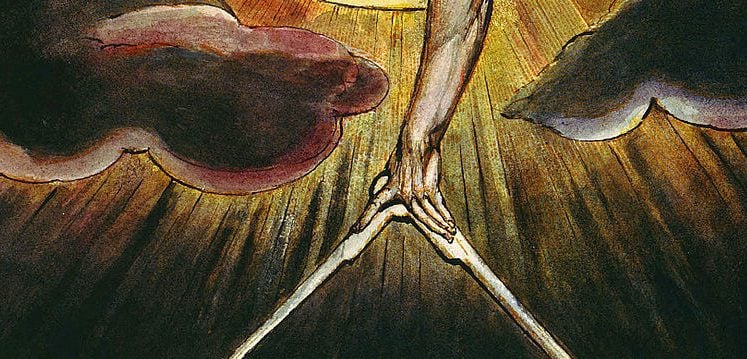
Done properly, divination is a spiritual pursuit that can provide a framework for greater integration of disparate aspects of the self. Done flippantly, it is worthless at best.
ProTip: If you still find yourself at a loss as to which of so many options to choose, I will give my recommendation here. An excellent place to start is with the Lenormand deck type. This deck has thirty-six cards, small enough to get started easily.
Perhaps most importantly, because the deck was developed based on 18th to mid 19th century middle-class life rather than medieval understandings of religious and Classical myths, the symbolism is more easily applicable to our lives today.



